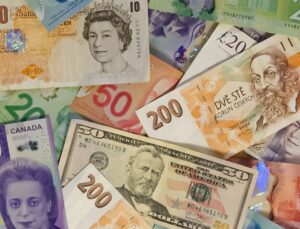The foreign exchange market, commonly known as the forex market, is the largest and most liquid financial market in the world. It facilitates the exchange of currencies between different countries, enabling individuals and businesses to conduct international trade and investment. The forex market has been growing rapidly over the years, and one of the key factors driving this expansion is technology.
Technology has played a crucial role in transforming the forex market and making it accessible to a wider range of participants. In the past, trading currencies required physical presence in a designated location, such as a stock exchange. However, with the advent of technology, particularly the internet, forex trading has become decentralized and can now be conducted from anywhere in the world.
One of the most significant technological advancements that has revolutionized the forex market is the electronic trading platform. These platforms are software applications that allow traders to buy and sell currencies electronically. They provide real-time access to market data, including currency prices, charts, and news, enabling traders to make informed decisions based on accurate and up-to-date information.
Electronic trading platforms have not only made forex trading more convenient but have also increased market efficiency. Previously, traders had to rely on phone calls or physical communication to execute trades, which could be time-consuming and prone to errors. With electronic platforms, trades can be executed with just a few clicks, reducing transaction costs and eliminating manual errors.
Furthermore, technology has also facilitated the development of algorithmic trading in the forex market. Algorithmic trading, also known as automated trading, involves the use of computer programs to execute trading orders based on predefined criteria. These algorithms can analyze vast amounts of data and execute trades at a much faster pace than humans, leading to improved efficiency and accuracy.
Algorithmic trading has become increasingly popular in the forex market due to its ability to execute trades based on complex mathematical models and algorithms. This form of trading has also led to the rise of high-frequency trading (HFT), where trades are executed in milliseconds. HFT has become a significant part of the forex market, accounting for a significant portion of daily trading volumes.
Another way technology has expanded the forex market is through the introduction of mobile trading applications. Mobile trading apps allow traders to access their trading accounts and execute trades using their smartphones or tablets. This has made forex trading even more accessible, as traders can now monitor and trade the market on the go.
Mobile trading apps have also integrated additional features such as push notifications, real-time news updates, and customizable alerts, further enhancing the trading experience. Traders can now stay connected to the market at all times and take advantage of trading opportunities as they arise.
In addition to electronic platforms and mobile trading apps, technology has also facilitated the growth of social trading in the forex market. Social trading platforms allow traders to connect with each other, share trading ideas, and even copy the trades of successful traders. This has democratized the forex market and made it more accessible to retail traders who may not have the expertise or experience to trade on their own.
Overall, technology has played a significant role in expanding the forex market. It has made trading more convenient, efficient, and accessible to a wider range of participants. As technology continues to advance, we can expect further innovations in the forex market, enhancing the trading experience and driving its growth even further.






